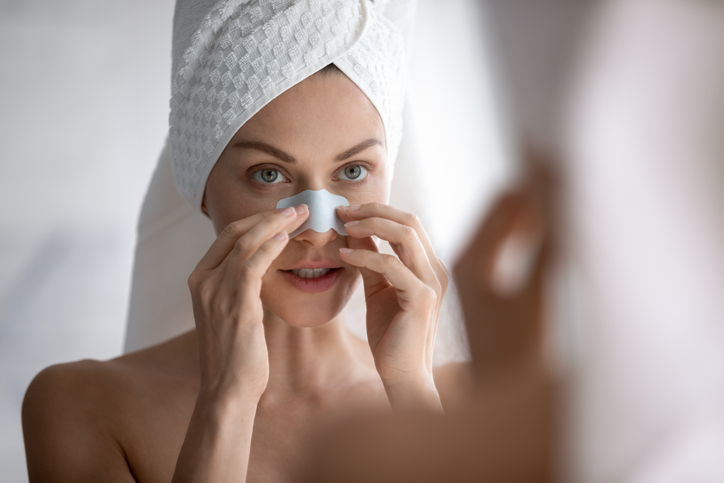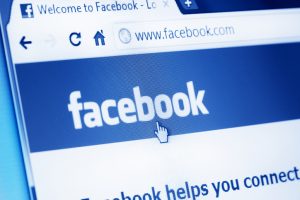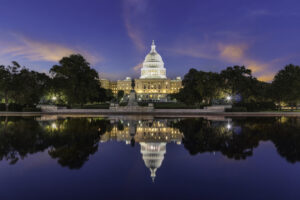The Daily Scoop: Bioré apologizes over influencer campaign that mentions school shooting
Plus more news you can use today.

Bioré and a social media influencer are in hot water after a paid social media campaign promoting its products came across as minimizing gun violence around the country, The New York Times reported.
As the Times explains:
An influencer and graduate of Michigan State University, Cecilee Max-Brown, posted a TikTok sponsored by Bioré in which she talked about how a shooting on campus in February affected her mental health along with stressors like her post-college career, narrating over videos that show her alternating between exercising, resting and using skin care products.
The MSU shooting involved a lone shooter who killed three students and wounded five others. The tragedy caused Max-Brown to have anxiety and feel “terror” while on campus, according to the article.
The New York Times article said that a spokesperson noted that Max-Brown’s video was part of a bigger mental health awareness campaign. Also, no one told her to say anything in particular, but to “give her personal, authentic and unfiltered story,” per the article.
The video was pulled down last Friday – not even 24 hours after being posted – when social media commenters said the clip was “insensitive” because the positive, “upbeat” vibe of the video was tone deaf to the heavy school shooting topic.
In an apology on Instagram, Bioré owned up to the issue and asked viewers to not direct their anger toward creators.
“We let our creators down by not providing better guidance,” Bioré posted.
View this post on Instagram
“For the past 4 years we have supported mental health alliances, working with social media influencers who experience anxiety, depression, and other mental health conditions to amplify their authentic, unscripted stories in an effort to help reduce the stigma that surrounds mental health.”
Bioré added that its consumers let them know that mental health is a top priority and the company wants to continue to offer “meaningful support” in that capacity.
“This time, however, we did it the wrong way. We lacked sensitivity around an incredibly serious tragedy, and our tonality was completely inappropriate. We are sorry.”
Max-Brown apologized, too, in a TikTok post about the partnership video and how the focus was geared toward her anxiety since the school shooting -– not about the product.
@cecileemax♬ original sound – Cecileemaxbrown
Why it matters: Authenticity is key when working with influencers and followers can tell when they’re faking it– especially with brand deals.
Yet in this case, was Max-Brown too real? School shootings are, tragically, a part of daily life in America, and certainly one that affects mental health. Could the video have been salvaged with a different tone, music choices or other alterations? Or was a video for a beauty product that tried to incorporate such a weighty topic always going to ring false?
While this scenario is a PR nightmare for brands working with influencers, it’s an ever-present reminder that these influencers need guidance and oversight.
Sequan Henries commented on Instagram that, “Apology statements aren’t being taken seriously. In this ‘cancel culture’ you HAVE to forsee possible negative outcomes before they happen.”
Though a brand doesn’t want to come across as stifling or overbearing to an influencer, ensuring the company is properly represented matters, too. Striking the right balance between influencer training and expectations can avoid disasters like this.
Top headlines:
- TikTok strikes back with a lawsuit against Montana over its ban, which is already impacting users including business owners.
- Brittney Griner exclaims, “I’m back” after scoring major points in first emotional game after Russian imprisonment.
- These brands took “reputational hits,” according to an Axios Harris Poll 100 brand reputation survey. See why.
Sherri Kolade is a writer at Ragan Communications. When she is not with her family, she enjoys watching Alfred Hitchcock-style films, reading and building an authentically curated life that includes more than occasionally finding something deliciously fried. Follow her on LinkedIn. Have a great PR story idea? Email her at sherrik@ragan.com.
COMMENT
3 Responses to “The Daily Scoop: Bioré apologizes over influencer campaign that mentions school shooting”
PR Daily News Feed
RECOMMENDED READING
The Scoop: NBA attempts to rebrand lackluster All-Star Game
Tags: Bioré








If you, like me, can’t figure out even after a few readings what the company and influencer did wrong, we come to this question: Did they do ANYTHING wrong or did the company apologize because that seemed easier than arguing?
Apologizing even when not guilty can be a PR blunder because an apology can be taken as an admission of guilt.
PR wisdom if not guilty would be to emphasize that “mental illness is a problem that endangers all of us, we and nearly everyone favors DOING something to reduce mental illness, and we are spending part of what we earn to make that happen. Also our executives and their family members will be volunteering their time to organizations that help reduce mental illness, and we are sponsoring high school essay contests on mental health in our plant communities.”
This kind of effort could do a lot more good for the public and the brand than apologizing especially since the intent was good and the problem deserves everyone’s attention.
I’m puzzled by this story. Did the company not view her video before it was posted to ensure it was tone appropriate? With this kind of topic there is heightened risk about reputational damage
Liz is so right. An even more common problem is that the history may be admirable but future behavior of an influencer may evoke public disapproval or even hatred.
The day may not be far off when PR wisdom is to associate the company with not just with sports or entertainment heroes but with the world’s great doctors, professors and non-profit executives. You may get more of a boost when you hire them, and less peril that they’ll do something stupid. And isn’t it good to do something that helps medicine, education and public service groups?